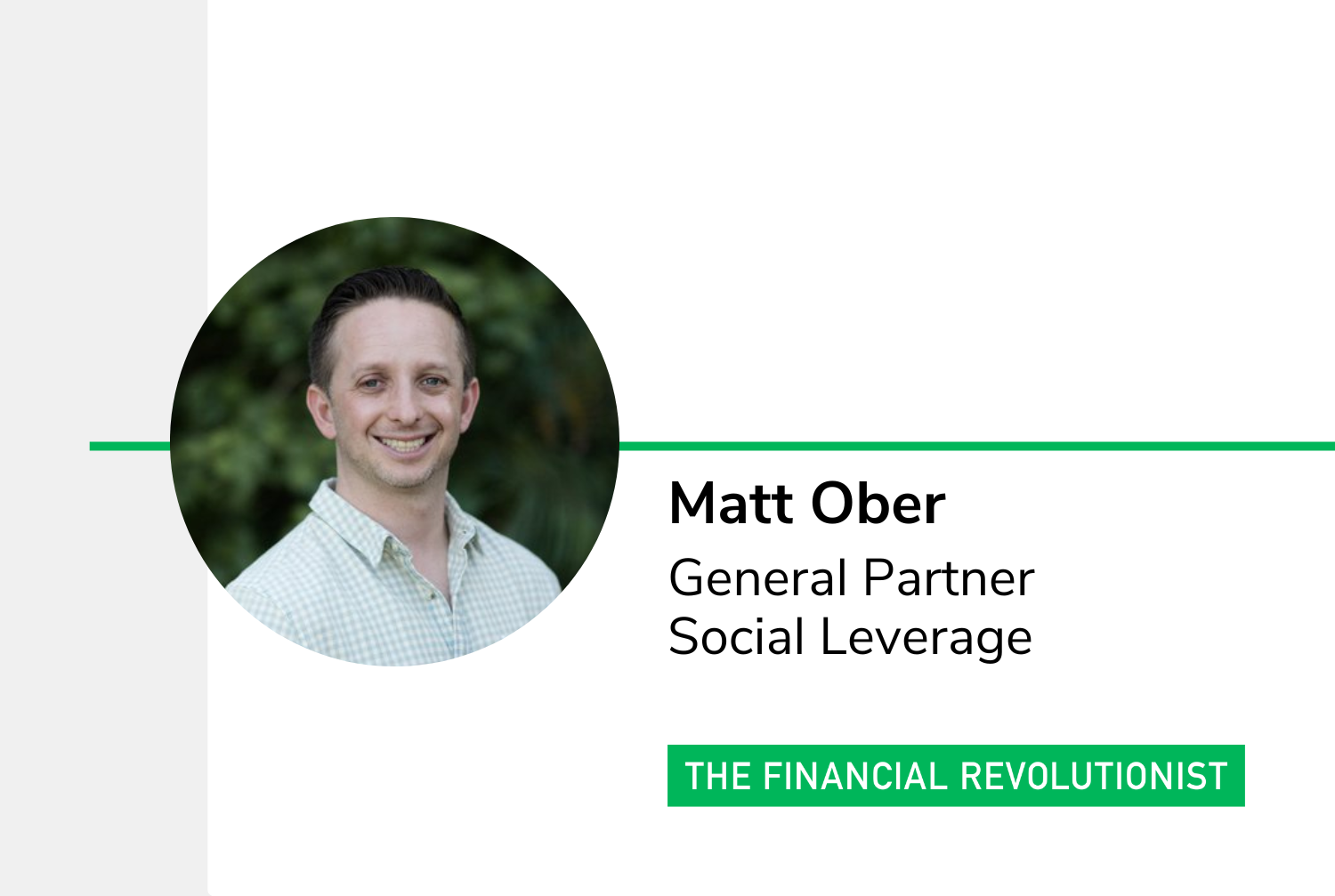The state of startup banking with Social Leverage
/Matt Ober is a general partner at Social Leverage, an early-stage seed investment fund focusing on financial services, enterprise SaaS, and consumer-facing brands, which has backed major companies like Robinhood, Kustomer, and StockTwits.
In a conversation with The Financial Revolutionist, Ober shares his perspective on SVB and Signature Bank’s recent collapse, describes the implications of this crisis on startup banking, and offers ideas for how to move forward.
This interview has been edited for length and clarity.
The Financial Revolutionist: What have the past few days been like for you?
Matt Ober: Non stop. I mean, we have portfolio companies and fund managers, so we’ve been seeing it from every angle besides being LPs at the same time.
Are portfolio companies dealing with deposit issues?
The news last night calmed everybody from the standpoint that now it’s just about moving their money and having a better process in place on having multiple banks, leveraging insured accounts above the FDIC $250,000 limit, and making sure they’re a little bit smarter in terms of who they bank with. And there are the insured sweep accounts, multiple banking layers, so I think everybody has a better grasp of what could potentially happen.
Right. Something that's worth noting is that SVB, back in 2015, was the banking partner for 65% of startups. The bank’s client base wasn’t that diversified—there’s this tradeoff between specialization, as in having very connected folks working at SVB who understand the landscape, and at the same time having all clients know each other which facilitates a quick run on the bank. Who are the banks people are looking to for that same level of expertise while also trying to minimize risk moving forward?
Specialization is a question: Who's going to step up? It'll become more clear now what other banks can offer early-stage companies. I think the crypto companies are probably the most at risk right now between SVB and Signature Bank. There are a lot of crypto companies and crypto funds on the venture side that are all just looking for a bank now.
I think on the traditional venture side, there are a lot of places to go, from the big banks to many others. If anything, there are going to be multiple banking partners for all companies now. And I do think that we'll need to see where this shakes out in terms of the FDIC or similar insurance on funds. People don't want to have to have this worry at all times, especially at the earlier stages.
Do you think that there will be any second-order implications from people using more than one banking partner? Does that shift really matter?
Everybody's thinking about the insured cash sweep accounts, or some sort of insured accounts. Obviously, it's much more important when you have more cash and you've raised more money, but at the same time, if I'm an early-stage startup that raised a million or two, I should have some sort of understanding of how FDIC insurance works have cash spread out in more than one account. I think it's just something that founders are getting educated on quickly.
How did you first hear of the run?
Emails coming through from other funds—combined with Twitter, which accelerates everything. With the availability of social networks, information—not knowing what is true and what’s not—can spread quickly.
Did you advise portfolio companies to withdraw?
We have always made sure that our portfolio companies were well diversified on the banking side. When news hit we were quick to release a working document with resources: banking partners that we've worked with, bridges available for payroll, and so on.
But I think at this point, it's more important to think about the way forward and working with the right banking institutions, having a better grasp of whether your money is insured, and thinking about the second-order effects, like who do you do your payroll with, and who are they using.
To what extent will this crisis drive startups towards big banks instead of neobanks?
Big banks versus more I would say regional or focused banks. People have to have trust, so if the trust isn't there, then I think people will congregate more to the larger banks. I think we need a rethink on the FDIC insurance limit, and on whether different types of accounts are more safe than others. And I think, obviously, all of this is driven by big swings and changes in the interest rate environment.
That makes a lot of sense.
What are you hearing?
Something that's sticking out to me is the fact that this speed of a bank run is only possible because of the technologies that tech VCs have invested in over the past 15-plus years. Twitter, Telegram, WhatsApp, fintech even—being able to move your money at the click of a button. Those are technologies that serve a purpose, but it’s another glaring example of technology outpacing regulation, where there could have been a backstop implemented much more quickly, the way there is when there’s a brick-and-mortar run on a bank.
I do think that you're right about Twitter, Telegram, WhatsApp, group chats; all these things spread misinformation. Fear doesn't help, especially in a system that's built on trust. As much as Silicon Valley Bank supports the startup industry, it’s supporting a lot of other small and medium businesses and there are a lot of people from a payroll perspective who are affected. It's a larger ecosystem.
Any other questions we should be asking?
The only question we should be asking is, how does the market react over the next week or two? Obviously today, It's not reacting as well as everybody had hoped. Everybody woke up this morning hoping everything would be fine. We're seeing the regional banks getting hit pretty hard. So public markets obviously affect private markets.
The question is, where do we go from here?









